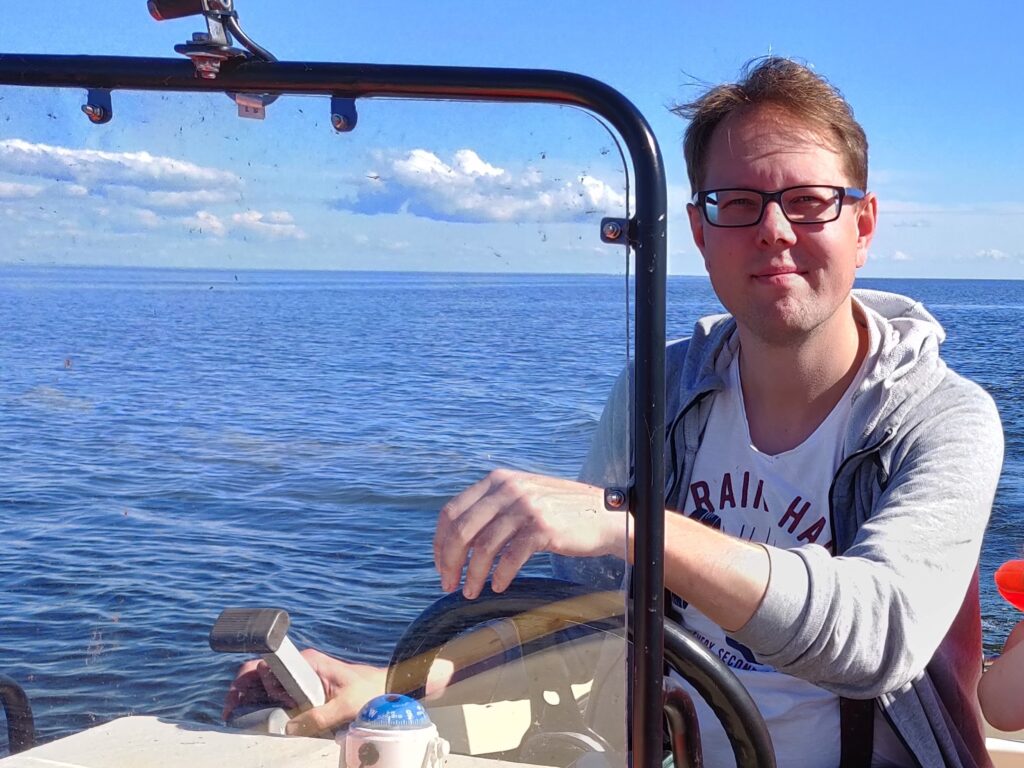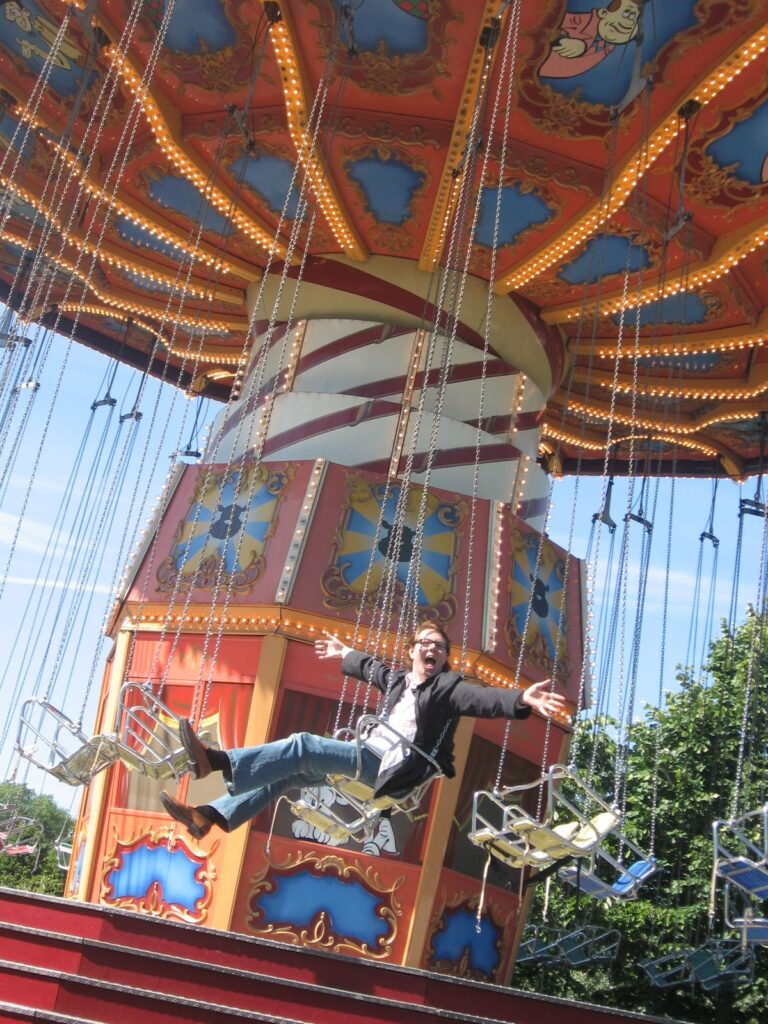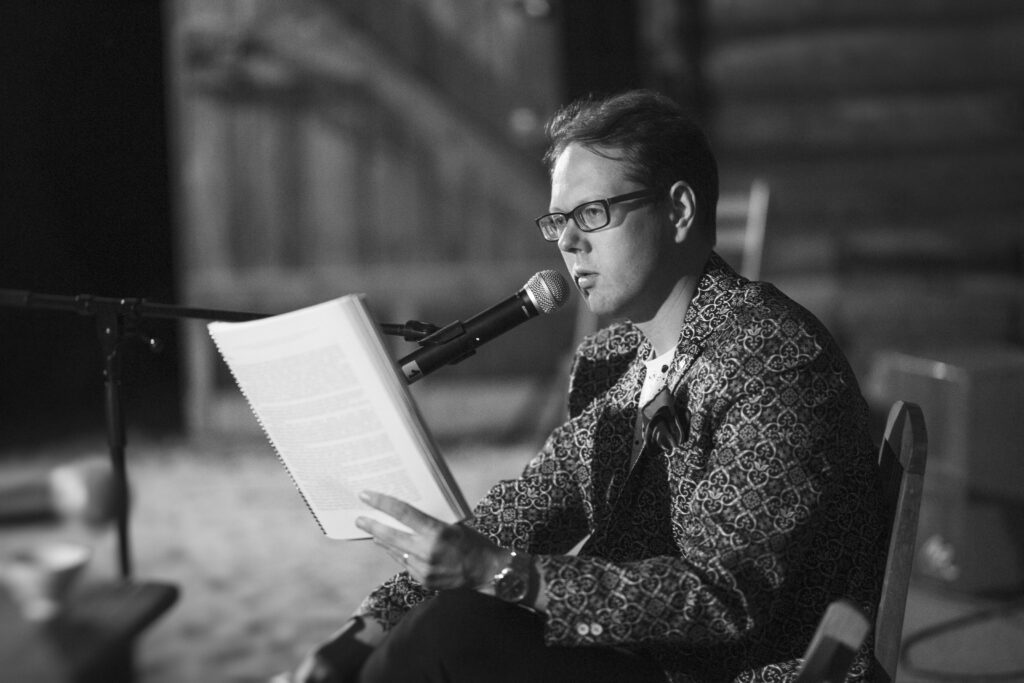The acclaimed Estonian author, Vahur Afanasjev, would have turned 42 on 24 August; Kristel Kont recalls him as a writer and a friend.
I first met Vahur in 2008 when we were both working as EU officials in Brussels. Three years my senior, both in age and in Brussels tenure, he was one of the older colleagues who showed me the ropes of the new job and life in the new city. Like many of the low-rank EU servants, we spent mornings idling at our desks, and weekends downing wine in Brussels bars, of which there were plenty. Vahur effortlessly introduced his various sets of friends to each other, and parties in his company lasted until early hours.
Not a particularly devoted EU official, Vahur’s ambition lay elsewhere already back then – in the arts. Although visibly talented, the depth of his ability was fully revealed (to me and I suspect also to many others) only years later, when his novel “Serafirma and Bogdan” took the Estonian literary scene by storm in 2017, earning both critical acclaim and readers’ love.
“Serafima and Bogdan”, a 500-page family tale spanning half the 20th century in a Russian Old Believers’ village by Lake Peipus, is a magnificent tale packed with punch, which in Vahur’s trademark style mixes inspiration from a range of sources. An ancient Norse saga provided a backbone for the story to which the author’s childhood memories from Lake Peipus added the flesh. Sprinkled with dark humour, wild imagination and a touch of magical realism, this feat of a novel took Vahur five years to complete.

Vahur’s next (and currently last) novel, “On the Brink of Bloom”, also boldly inserts real-life references in a fictional world. It’s 2028, the world is in danger of being hit by an asteroid Apophis 99942 (which actually exists) and its fate rests in the hands of an eccentric hero (or anti-hero?) outwardly modelled after a certain real-life electric car and space billionaire.
“On the Brink of Bloom” ‒ the title of which I initially found slightly pompous but which in retrospect has taken on a whole new symbolic meaning ‒ is probably my favourite text by Vahur. It’s rare to find such spot-on and clever reflection on the mores and manners of contemporary society in Estonian literature. In my view, Vahur also reaches a new level of psychological subtlety in this novel ‒ just like one of the protagonists, the provocative artist Aivar, does at the end of the book.
I succumbed to trite metaphors when describing Vahur’s literary legacy. His own language was rich and evocative, filled with deeply original metaphors. After all, he had started out as a poet and achieved remarkable maturity already in his early poetry collections, according to those more well-versed in literary affairs.
The huge literary success of “Serafima and Bogdan” in Estonia did not make Vahur smug. On the contrary, his modesty seemed to increase in proportion to the praise poured on him. The Vahur I knew in his later years had shed much of the bravado of his youth and was measured and courteous in his expression. It was the softness of a man who had proven his worth and didn’t need to impress anyone anymore. That is how I will remember him.

As a friend, Vahur was supportive and discreet. He listened without judgement and encouraged, yet never pried. His circle of friends was broad and not restricted to the “artsies” or the “techies” but encompassed people from miscellaneous walks of life. He had a rare talent of making people feel appreciated in his presence, which made it easy for him to connect to them. How large Vahur’s circle of friends was and how deep the mark he imprinted upon them, has become fully clear to me only now in the wake of his departure.
Just like his friends, Vahur’s interests were equally manyfold. He’d dabbled in the startup world, worked in journalism, PR and marketing. He possessed an MBA and a fair amount of business acumen, allowing him to self-publish his books. He took genuine interest in the latest technological advances from electric cars to solar energy to cryptocurrencies to NFTs. A hobby songwriter-musician, a hobby artist, a hobby investor, a hobby art collector, even an art curator… Vahur became fascinated easily and didn’t shy away from taking new routes.
***
The mourning of a close friend is a strange affair. Rather than being swiped off the feet by a tsunami of grief shortly releasing its grip, it’s more reminiscent of standing ankle-deep in an icy creek, its chillness serving as a reminder of the new reality day after day. Unable to fully grasp or accept what has happened even months later. How can our bodies be so frail and fail us with barely any notice? What about all those plans left unaccomplished? Those moments to have been fully experienced? All the fun still to be had together? How can everything come to an end so prematurely?
***
The morning before Vahur’s last party ‒ held in his honour at his lakeside house this July ‒ I stumbled on the car radio upon “Live Forever” by Oasis. I’ve listened to “Definitely Maybe”, the album the track is originally from, on many occasions after that. There’s something comforting in those sounds from the mid-90s. The 1990s, which “actually weren’t that horrible after all” ‒ something Vahur said in one of his last interviews. Then, I suppose, the years of one’s youth never are.
If a writer passes away, there’s solace to be found in the words that are left behind. The novels, the poetry, the interviews, the private conversations. Those words will have to suffice for a long time now.
Live forever, dear friend!
Vahur Afanasjev (24.08.1979-10.05.2021) was an Estonian writer, poet and entrepreneur. The English translation of his popular novel “Serafima and Bogdan” (2017) is set to be released later this year.
Cover: Vahur Afanasjev reading out his latest novel at an Estonian literary festival in August 2020. Photo by Kris Moor.

